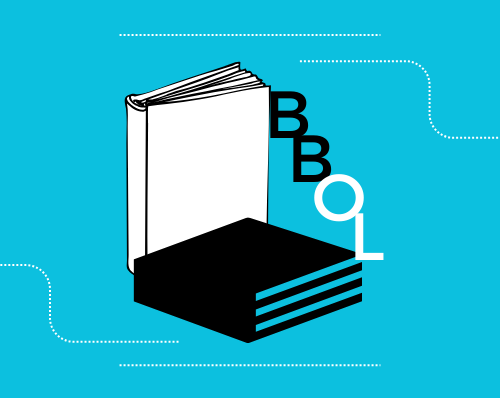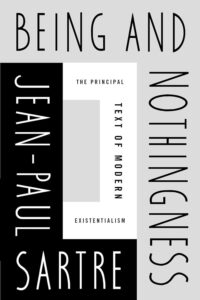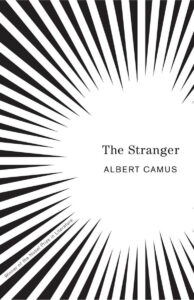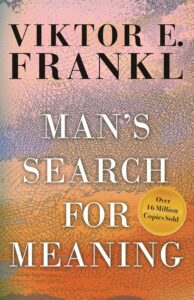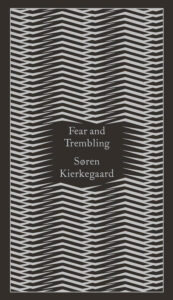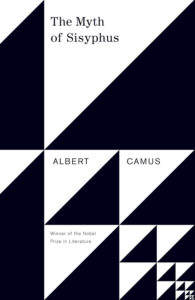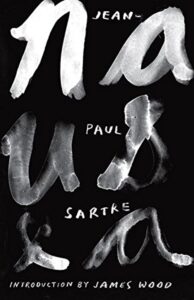Existentialism is a philosophical movement that explores the nature of existence, freedom, and the human condition. These books offer valuable insights, techniques, and guidance to help you delve into existential thought. Here, we’ve curated a list of 7 best books on existentialism that provide practical advice and comprehensive information for anyone interested in this profound field.
Being and Nothingness by Jean-Paul Sartre
Description: Jean-Paul Sartre’s seminal work, “Being and Nothingness,” explores existentialist themes such as freedom, bad faith, and the nature of existence. The book delves into the concept of being and the human experience of consciousness.
Key Takeaways:
- Understand Sartre’s concept of existentialism and freedom.
- Explore the ideas of bad faith and authenticity.
- Delve into the nature of human consciousness and existence.
Why Read It: Essential for anyone looking to understand Sartre’s existentialist philosophy and its impact on modern thought.
The Stranger by Albert Camus
Description: “The Stranger” is a novel by Albert Camus that explores the absurdity of life and the inevitability of death. The story follows Meursault, who becomes indifferent to the world around him, reflecting existentialist themes of absurdity and alienation.
Key Takeaways:
- Understand the concept of the absurd and its implications.
- Explore themes of alienation and indifference.
- Contemplate the human experience and the quest for purpose.
Why Read It: Perfect for those interested in existentialist literature and the philosophy of the absurd.
Man’s Search for Meaning by Viktor E. Frankl
Description: Viktor Frankl’s powerful memoir, “Man’s Search for Meaning,” chronicles his experiences in Nazi concentration camps and explores the existential quest for meaning. Frankl introduces logotherapy, a therapeutic approach centered on finding purpose in life.
Key Takeaways:
- Learn about the importance of finding meaning in life.
- Understand Frankl’s concept of logotherapy.
- Reflect on the human capacity for resilience and hope.
Why Read It: Ideal for those seeking inspiration and a deeper understanding of the search for meaning.
Fear and Trembling by Søren Kierkegaard
Description: In “Fear and Trembling,” Søren Kierkegaard explores the themes of faith, ethics, and individualism through the biblical story of Abraham and Isaac. The book explores the idea of the ‘leap of faith’ and the conflict between ethical obligations and religious beliefs.
Key Takeaways:
- Understand Kierkegaard’s concept of the “leap of faith.”
- Explore the tension between ethics and religious faith.
- Reflect on the nature of individuality and personal choice.
Why Read It: Essential for anyone interested in existentialist theology and the philosophy of faith.
Existentialism is a Humanism by Jean-Paul Sartre
Description: “Existentialism is a Humanism” is a lecture by Jean-Paul Sartre, where he defends existentialism against its critics. Sartre explains the core principles of existentialist thought and its implications for human freedom and responsibility.
Key Takeaways:
- Understand the core principles of existentialist philosophy.
- Learn about human freedom and responsibility.
- Explore Sartre’s defense of existentialism as a humanistic philosophy.
Why Read It: Perfect for those seeking a concise introduction to existentialist philosophy and Sartre’s ideas.
The Myth of Sisyphus by Albert Camus
Description: In “The Myth of Sisyphus,” Albert Camus explores the concept of the absurd and the human struggle to find meaning in a meaningless world. The essay uses the myth of Sisyphus as a metaphor for the human condition.
Key Takeaways:
- Understand the concept of the absurd and its implications.
- Explore the human struggle for meaning and purpose.
- Reflect on Camus’s metaphor of Sisyphus and its relevance to the human condition.
Why Read It: Ideal for those interested in existentialist themes of absurdity and the search for meaning.
Nausea by Jean-Paul Sartre
Description: “Nausea” by Jean-Paul Sartre is a novel that delves into existentialist themes through the experiences of Antoine Roquentin, who grapples with deep feelings of existential nausea and isolation. The book examines the essence of existence and the complexities of the human condition.
Key Takeaways:
- Understand Sartre’s concept of existential nausea.
- Explore themes of alienation and the nature of existence.
- Reflect on the human condition and the search for authenticity.
Why Read It: Essential for those interested in existentialist literature and exploring the human condition.
Conclusion
Existentialism offers profound insights into the nature of existence, freedom, and the human condition. The above books provide valuable teachings, techniques, and guidance to help you explore and understand existentialist thought. Whether you are a beginner or an experienced thinker, these books offer essential Help for your philosophical journey.
